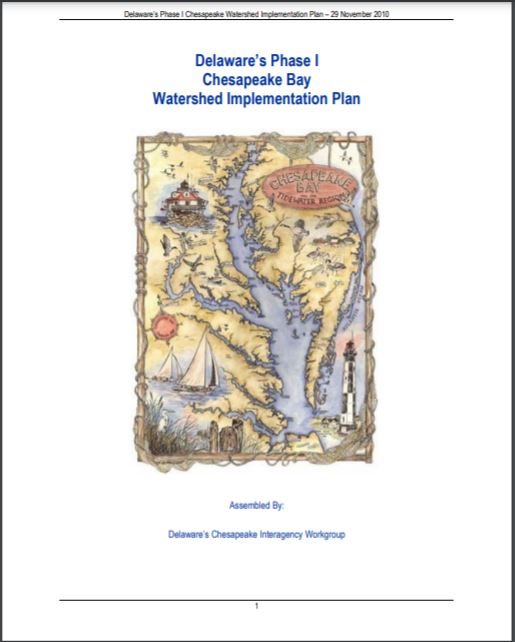Draft Phase I Watershed Implementation Plans (WIPs) were due to EPA on Sept. 1, 2010. Final plans were submitted on Nov. 29, 2010.

Following the release of Delaware’s Draft Phase I WIP, numerous comments and questions from both EPA and various stakeholder groups within the watershed were submitted. As a result of comments and questions, significant revisions to plan were made. The final approved plan was used to develop the EPA Chesapeake Bay watershed-wide Total Maximum Daily Load (TMDL) that was released in December 2010.
The most important criticism from EPA was that the draft plan did not achieve load reduction goals for nitrogen or phosphorus. As a result, EPA indicated their intention to institute backstop allocations (more stringent limits and actions on wastewater treatment plants, municipal stormwater, and regulated agriculture) – if the State was unable in the final plan to achieve the necessary load reduction goals and provide reasonable assurance that these goals could be achieved.
Stakeholder comments and questions often focused on the costs of implementing certain actions and the potential impacts on local businesses.
The final Phase I WIP documents are available below for download.
An input deck is a spreadsheet formatted specifically for inclusion in the Chesapeake Bay Program Watershed model for analyzing future “what if” scenarios by the EPA. The spreadsheet contains information about the type and amount of best management practices that may be implemented, the associated units, the land uses or fish and wildlife the management practices apply to, and where these BMPs will be located.
Wastewater Treatment Plant Input Deck
Nonpoint Source Best Management Practice Input Deck
Phase I WIP Public Comments and Responses
EPA Evaluation of Delaware’s Final Phase I WIP
2-Year Milestones Goals to help achieve the TMDL and WIP
ChesapeakeStat – Find data and information on progress toward meeting Chesapeake goals
Related Topics: chesapeake, implementation, nonpoint source, water quality, watershed, watershed stewardship